Kenyon: Dartmouth alumni join union-busting effort
| Published: 04-16-2024 8:01 PM |
Dartmouth President Sian Leah Beilock has made it clear the college views its men’s basketball players — and their recent historic vote to unionize — as a threat to ….
Fill in the blank.
The college’s bottom line? The status quo? The misconception that sports really aren’t a big deal in the Ivy League?
All of the above, and then some.
Dartmouth is trying to spin the players’ 13-2 vote to unionize as a sky-is-falling moment in college athletics.
In a Wall Street Journal op-ed last week, Beilock vowed Dartmouth will “go all the way to the Supreme Court if that’s what it takes to prevent this misguided development from taking hold.”
The battle between Dartmouth and its basketball team has already turned ugly. The college is getting a behind-the-scenes assist from alumni who are not thrilled about their alma mater becoming home to the first collegiate athletic team in the country to unionize.
The basketball players are being reminded that Dartmouth has a vast network of connected graduates who are in a position to help them land coveted jobs — particularly in the world of finance — after graduation.
Article continues after...
Yesterday's Most Read Articles
 Lebanon moves forward with plans for employee housing
Lebanon moves forward with plans for employee housing
 At Dartmouth, hundreds protest ongoing war in Gaza and express support for academic freedom
At Dartmouth, hundreds protest ongoing war in Gaza and express support for academic freedom
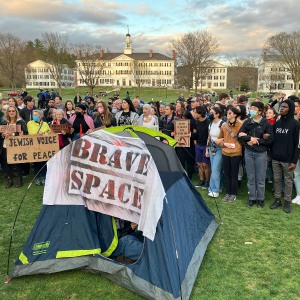 Police break up protest at Dartmouth College, 90 arrested
Police break up protest at Dartmouth College, 90 arrested
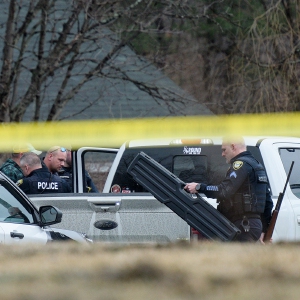 Man tied to Lebanon school lockdowns pleads not guilty to charges
Man tied to Lebanon school lockdowns pleads not guilty to charges
The not-so-subtle warning: If players don’t hop off the unionization train now, it could derail their business careers down the line.
Local 560 of the Service Employees International Union, or SEIU, which the players voted to join, recently caught wind of what its newest members are up against. (Local 560 has represented hundreds of Dartmouth blue-collar workers since 1966.)
The Beilock administration has “allowed a small group of disgruntled donors to directly threaten the players by denying them access to jobs and internships,” Local 560 President Chris Peck, a longtime painter at the college, said in a statement released Monday afternoon.
“While we recognize that the vast majority of alumni do not countenance such tactics, such a campaign is entirely incompatible with Dartmouth standards and President Beilock’s professed commitment to dialogue and ‘safe spaces,’ ” Peck added.
After I brought up what was happening, I heard from Dartmouth on Tuesday. “We have not asked alumni to get involved in the unionization process in any way and we are unaware of any organized effort to do so,” Justin Anderson, senior vice president for communications, responded.
For good reason, alums involved in the effort don’t want their fingerprints on it. Threatening to blacklist 20-year-old college students isn’t a good look. So they’re using younger alums and former players to get the message across.
On Sunday, I called Cam Krystkowiak, who last played for Dartmouth in 2022-23 and was a teammate of many of the current players. His father, Larry, played 11 seasons in the NBA.
Krystkowiak recently moved to New York, where he’s looking for a job in finance. It’s put him in contact with alumni who are now prominent in the business world.
“I won’t name names, but I haven’t found anyone who is really excited about this,” he told me. “It’s a big deal for anyone who cares about Dartmouth basketball.”
Krystkowiak has let his former teammates know some alums aren’t “interested in helping guys who are involved” in the unionization effort.
“I’m not trying to freak anyone out, but I want players to consider the risk-reward part of it,” he told me. “I want to make sure they’re aware of the potential consequences.”
“Is it really worth $17 an hour when you’re a senior?” he added, using a ballpark figure that players might receive if contract negotiations with the college come to fruition.
So far, Dartmouth has refused to come to the bargaining table and likely won’t. Dartmouth’s strategy is to contest a ruling made by the National Labor Relations Board’s regional director in Boston that players are college employees. If that doesn’t work, Dartmouth will head to federal court.
Krystkowiak told me that he’s against players getting paid, but supports one of the union’s main goals — requiring the college to pay for out-of-pocket medical expenses incurred by injured players.
Although they disagree, Romeo Myrthil, a junior guard on this season’s team and a leader of the unionization effort, doesn’t have a problem with Krystkowiak playing the role of messenger.
“He’s doing it in a caring way,” Myrthil said in a brief interview. “He’s looking out for us.”
A crack in the players union movement surfaced last week. Connor Christensen, a junior who voted in favor of unionizing, wrote an op-ed in The Dartmouth, the daily student newspaper, indicating his position had changed.
“I believe that the movement opposes the core values and traditions of Dartmouth athletics — the balance between a rich academic history and competitive athletics — and may lead to unintended consequences for athletes across the College,” Christensen wrote.
The reaction from “current student-athletes and alumni of the College has been supportive,” he told me via email. “I have not received any pressure from alumni or former players to drop out of the movement.”
Three former basketball teammates from 50 years ago also recently wrote to The Dartmouth. John Mathias, William Stableford and Robert Sturges — who is now a part-owner of the NBA’s Miami Heat — played for Dartmouth in the late 1960s.
“When we were students, none of us ever believed we had been hired to play basketball at Dartmouth,” they wrote. “Rather, we felt privileged to represent our school while fulfilling our academic requirements and graduating from one of the top colleges in the country. We are beyond disappointed that the current team seems to feel differently.”
On Monday, I reached Mathias at his law office in Chicago. The letter wasn’t meant to pressure players into dropping their union efforts, he said.
“I don’t hold it against the players and nobody should,” Mathias said. “I’m sure the players’ motives are pure. They’re just misguided.”
Mathias is listed on the Friends of Dartmouth Basketball’s “honor roll of donors” for giving somewhere between $5,000 and $9,999 during the 2022-23 season. How much longer he continues to write checks is up in the air.
“I have serious questions about whether I could support professional athletes,” Mathias said.
The worry is that other donors might have the same questions, Krystkowiak said.
The Friends group, a booster club for men’s and women’s basketball, raises $300,000 or more annually for the two programs combined.
“Nobody at the College has reached out to me in my role as Co-Chair of Friends of Dartmouth Basketball to do anything in regard to the unionization matter,” Gregg Frame, a Portland, Maine attorney who played for the college in the early ‘90s, wrote in response to questions I sent him.
Stressing that he wasn’t speaking for the Friends group, Frame said the people he has talked with “about this issue are generally supportive of the College’s position.”
Beilock argued Dartmouth’s case in the Wall Street Journal last week. The op-ed was an opportunity for her to play to the college’s conservative, anti-union donor base.
I imagine the Journal’s editorial board was more than happy to give her a platform. Paul Gigot, the Journal’s editorial page editor and vice president, is a Dartmouth man, graduating in 1977.
Beilock’s op-ed made it seem as though Dartmouth’s intercollegiate athletic programs were one step above intramurals.
“We organize teams not to sell tickets but because athletics contribute to our students’ educational experience,” she wrote. “Our men’s basketball team wishes to change that and, on March 5, voted to unionize.”
She failed to mention that in many sports Dartmouth plays a national schedule, requiring athletes to miss multiple days of classes each season. (In November, the men’s basketball team played at Duke.)
She also argued the college isn’t “trying to turn a profit with sports.”
So why does Dartmouth feel the need to charge the public to watch its basketball, football and ice hockey games?
The college also doesn’t have a problem accepting a six-figure payout from the NCAA every year for the Ivy League’s participation in the men’s basketball tournament, which Dartmouth last qualified for in 1959.
On paper, the basketball program loses money. But that doesn’t account for the millions of dollars in tax-deductible contributions given by alums on behalf of athletics that have helped the college build its $8 billion endowment.
The money that’s involved in college athletics was a topic of discussion Monday night at a campus forum. Tony Clark, executive director of the Major League Baseball Players Association, was invited to speak about unions and his experiences in the labor movement. Clark, who played 15 seasons in the big leagues, has headed the MLB players union since 2013.
Dartmouth is another example of a management “doubling down” to “fight against workers organizing,” Clark said during the event hosted by, among others, the college’s history department.
Clark was joined by Michael McCann, a professor at the University of New Hampshire Franklin Pierce School of Law and national expert in sports law.
The U.S. Supreme Court, led by its conservative majority, in recent anti-trust cases involving the NCAA has all but declared amateurism in college athletics is dead, McCann said. In a 2021 concurring opinion, Justice Brett Kavanaugh stated the “NCAA’s business model of using unpaid student athletes to generate billions of dollars in revenue for the colleges raises serious questions under the antitrust laws.”
McCann also referred to Beilock’s claim in the Journal that athletic departments at Dartmouth and the other seven Ivy League schools aren’t “run, managed and monetized like a professional sports league.”
In spite of what Beilock wants the public to believe, Ivy League schools are “already professional” McCann said. They have well-paid coaches, large athletic department staffs and a deal with ESPN for broadcasting rights to games.
McCann mentioned how Dartmouth used the basketball team’s trip to Duke as a “fundraising vehicle.” For a $5,000 check to Dartmouth, alumni received hard-to-get tickets to the game and special access to players.
Meanwhile most of Dartmouth’s basketball players aren’t from families that can afford to line the college’s coffers. Eleven of the 15 players receive financial aid, but that doesn’t cover all of their living expenses or the cost of getting home during school breaks. To make ends meet, they take on part-time jobs while keeping up with academics and basketball.
A major reason for forming the union was so players could get paid for their in-season work. It would put them on par with other Dartmouth unionized students, who earn roughly $20 an hour for working in the college’s dining halls and snack bars. Paying each player about $10,000 a year would cost the college in the neighborhood of $150,000.
I’m willing to bet Dartmouth is spending a lot more than that to quash the players’ union.
Shortly before the March vote by players, the college brought in a second outside law firm to help fight the union effort. Morgan Lewis has a reputation for playing hard ball on behalf of its big-name clients, including Amazon, SpaceX and Trader Joe’s, when they have issues before the NLRB. A few years ago, Morgan Lewis lawyers helped Amazon defeat a unionization effort by 5,800 of its warehouse workers in Alabama.
And now some Dartmouth alumni are trying to do their part to make sure players don’t receive a dime for their work on the basketball court and appearances at fundraising events.
After Monday night’s forum, I talked with Clark about what some alums were doing, which he’d already heard about.
“It’s unfortunate that some have chosen to threaten these players who are truly not only trying to improve things for themselves but for those who will come after them,” said Clark, who met with players during his visit.
With the baseball season just starting there were probably other places Clark needed to be. But he made the trip to Hanover a priority.
“Young people who are looking to shake stuff up is something I get excited about,” he said.
Jim Kenyon can be reached at jkenyon@vnews.com.

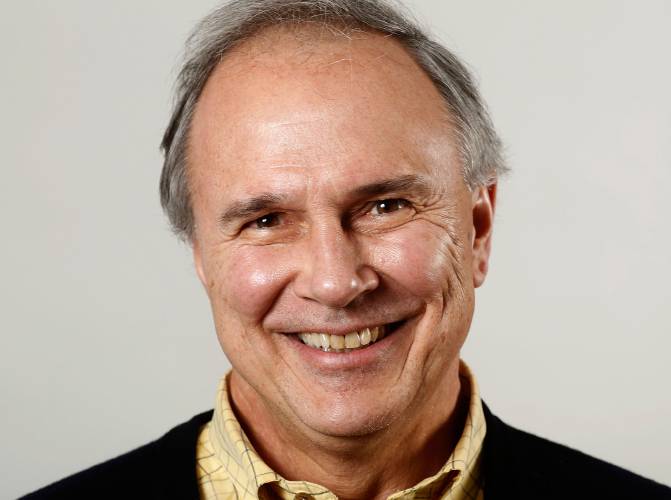
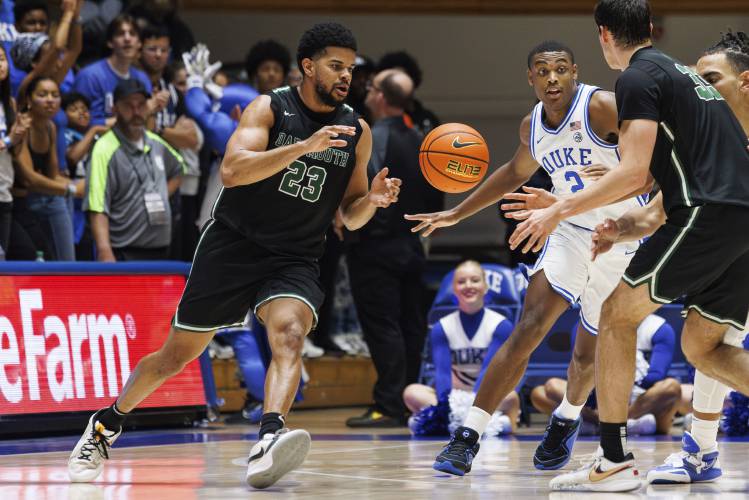
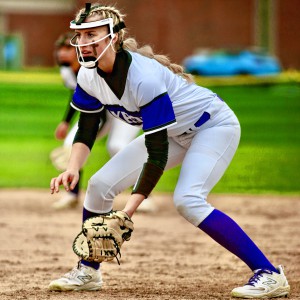 Oxbow softball at dynastic, dominant best
Oxbow softball at dynastic, dominant best Local Roundup: Hanover, Lebanon girls tennis teams are undefeated
Local Roundup: Hanover, Lebanon girls tennis teams are undefeated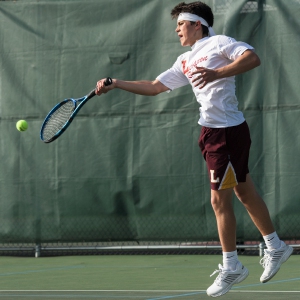 Local Roundup: Lebanon wins big over Bow in boys tennis
Local Roundup: Lebanon wins big over Bow in boys tennis
